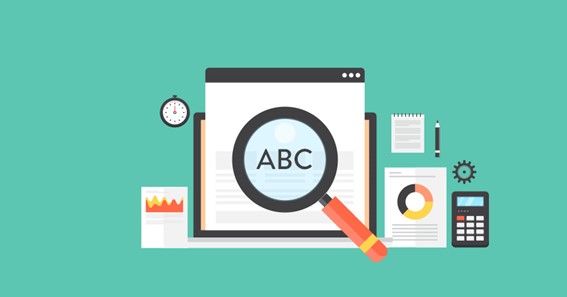I’ve seen this question asked a lot, and as someone who’s been on both sides of the fence (as a writer and a reader), I can tell you that although it’s not always clear which answer is correct, there are some general rules to follow. First of all, let’s make sure we know what we’re talking about here: “is” is called an “indefinite article” because its meaning is more vague than that of other articles such as “the” or “a”, but it still tells us something about what follows. For example, if you say that your friend is driving down to California next week, then he or she must be driving by car—not by plane or train or bike!
First, think about it from a semantic perspective.
As you may know, a grammar checker is not a mind reader. A computer program cannot tell whether you meant to use ‘for’ or ‘is’ in a given sentence; it can only understand what it reads on the page before it. So when it suggests that you change “She is my sister” to “She for my sister”, make sure that this makes sense given your intended meaning.
If you’re confused by this suggestion, consider what each word means:
- Is means to be in some way associated with something else (e.g., I am your friend).
- For suggests that something exists because of another thing or that someone does something for some other purpose (e.g., I did this for him).
click here – Know everything about managed SD-WAN services before choosing for your business
“is” is more general than “for”.
If you want to use the more general “is”, don’t change it. If you want to use the more specific “for”, change it. Keep in mind that your writing will be easier for a human reader if you choose simple words over complex ones, and active voice over passive voice.
- “is” is more general than “for”.
- When you use “is,” you are referring to a state. For example, if someone says that a man is a doctor, it means he has been trained and licensed as a medical professional. If he were to say that the man was for a doctor, this means that he would like to become one but has not yet done so.
- On the other hand, when using ‘for’, it indicates duration or action in progress: “It’s raining.” vs “It’s raining.”
Not all suggestions of a grammar checker are to be accepted
There are www.grammarchecker.com that offer suggestions. If you accept the suggestion, you can continue writing without having to stop and think about what you’re doing. But if you don’t know whether or not to accept the suggestion, there are two ways of handling the situation:
- Read your sentence again and see if it makes sense given what came before it and after it. If so, then your first instinct was correct—it doesn’t need changing and should be accepted as is by your grammar checker (GCC).
- If something seems off but it’s unclear why, look at other sentences in your document to see how they were written; perhaps a similar sentence will offer more insight into how yours should be written as well.
click here – Tips and tricks for getting the most out of reverse image searches
Check the sense of the sentence before accepting suggestions
Keep in mind that the grammar checker is not an infallible machine. It can be wrong, and it will often tell you to do things that don’t make sense in your context. Don’t always believe what it says! However, if you think about grammar as a way of communicating meaning—rather than just a set of rules to follow—it’s easy to understand why some suggestions are offered by the grammar checker.
If this sentence is correct but sounds odd or awkward (e.g., “I have done nothing but play video games”), then there may be something wrong with your word choice or sentence structure. You might want to rephrase it so it makes more sense (“I’ve been playing video games all day”).
When the grammar checker offers suggestions for fixing errors, pay attention only if they make sense given what came before them and what comes after them in the sentence; otherwise ignore their advice entirely
Conclusion
Hopefully, this has helped you understand why the grammar checker is suggesting that you use “for” instead of “is”. If you still have questions about how to use correct English, we recommend visiting a dictionary or asking someone who knows a lot about grammar.

